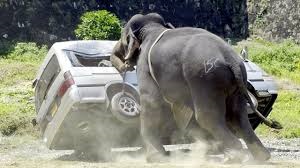Deputy Minister of Environment, Climate, and Wildlife, John Paradza, has underscored the pressing need for communities to foster co-existence with wildlife as human-wildlife conflicts escalate, disrupting livelihoods and claiming human lives.
Speaking at the annual community engagements on climate and wildlife in Kariba, Paradza said the importance of awareness and sensitization meetings to nurture understanding and promote sustainable conservation methods.
“We continue to encourage co-existence, awareness, and sensitization meetings. This will also nurture the community to realize the importance of co-existence so that we have a sustainable conservation method,” said Paradza.
Despite commendable efforts, concerns have been raised regarding the lack of assistance for victims of wildlife attacks.-
Samson Coffee, the information and publicity officer of the Kariba Urban Residents Association, urged the government to prioritize initiatives ensuring adequate support for those affected by human-wildlife conflicts.
“As residents, we applaud the government for such community engagements, but we expect initiatives where victims of human-wildlife conflicts get assistance,” Coffee said.
The Zimbabwe Parks and Wildlife Management Authority has faced challenges in compensating victims of wildlife attacks, despite the approval of a Human-Wildlife Conflict Relief Fund in 2022. Alarming statistics reveal a concerning trend: in 2021, 71 deaths and 50 injuries were recorded, compared to 60 deaths and 40 injuries in 2020. In 2022, 68 people fell victim to wildlife attacks. The first quarter of 2023 alone saw 15 deaths and 43 injuries.
Experts attribute the rising incidents of human-wildlife conflicts to various factors, including the increase in wildlife populations and a ban on culling. The ban, enacted following the Convention on Trade in Endangered Species’ global prohibition on ivory trade, has inadvertently contributed to heightened encounters between humans and wildlife.



